Earth
Sign up for our newsletter
We summarize the week's scientific breakthroughs every Thursday.
-
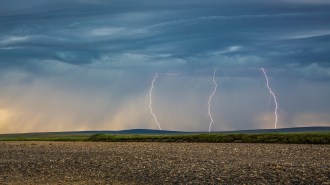 Earth
EarthA spike in Arctic lightning strikes may be linked to climate change
Global warming may be revving up summer thunderstorms in the Arctic, leading to skyrocketing numbers of lightning strikes.
-
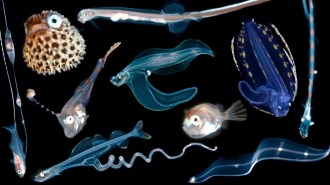 Animals
AnimalsDazzling underwater photos capture new views and scientific detail of fish larvae
Lab specimens of fish larvae are often mangled and bleached. Divers and researchers have partnered to study their rich colors and intricate bodies.
-
 Ecosystems
EcosystemsHow kelp forests off California are responding to an urchin takeover
A pair of studies reports 95 percent loss of kelp forests along the northern coast while sea otters are helping maintain surviving kelp farther south.
-
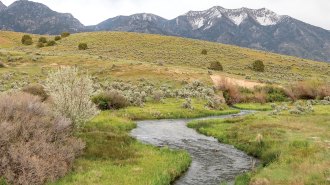 Ecosystems
EcosystemsSimple hand-built structures can help streams survive wildfires and drought
Building simple structures with sticks and stones — and inviting in dam-building beavers — can keep water where it’s needed to fight drought and wildfires.
-
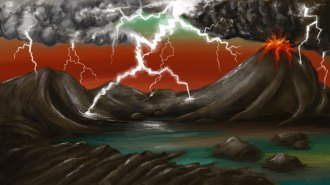 Earth
EarthPhosphorus for Earth’s earliest life may have been forged by lightning
Lightning strikes can supply one of life’s essential elements, long thought to be delivered by meteorites billions of years ago.
-
 Archaeology
ArchaeologyA tour of ‘Four Lost Cities’ reveals modern ties to ancient people
In the book 'Four Lost Cities,' author Annalee Newitz uses cities of the past to show what might happen to cities in the future.
-
 Environment
EnvironmentThe world wasted nearly 1 billion metric tons of food in 2019
A new United Nations global food waste report shows where waste can be reduced, which would decrease hunger and greenhouse gas emissions.
-
 Animals
AnimalsA year after Australia’s wildfires, extinction threatens hundreds of species
As experts piece together a fuller picture of the scale of damage to wildlife, more than 500 species may need to be listed as endangered.
-
 Earth
EarthTo understand how ‘night-shining’ clouds form, scientists made one themselves
A rocket, a bathtub’s worth of water and a high-altitude explosion reveal how water vapor cools the air to form shiny ice-crystal clouds.
-
 Environment
Environment‘Green’ burials are slowly gaining ground among environmentalists
Researchers asked older environmental activists what they planned to do with their bodies after death. Many were unaware of “green” burial options.
-
 Paleontology
PaleontologyClimate change helped some dinosaurs migrate to Greenland
A drop in CO2 levels helped massive plant eaters called sauropodomorphs trek from South America to Greenland 214 million years ago, says a new study.
-
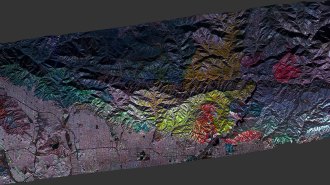 Earth
EarthColor-coded radar maps reveal a patchwork of California wildfire destruction
A composite made up of fine-scale vegetation maps from different years lets researchers track the story of plant loss and regrowth around Los Angeles.
By Jack J. Lee